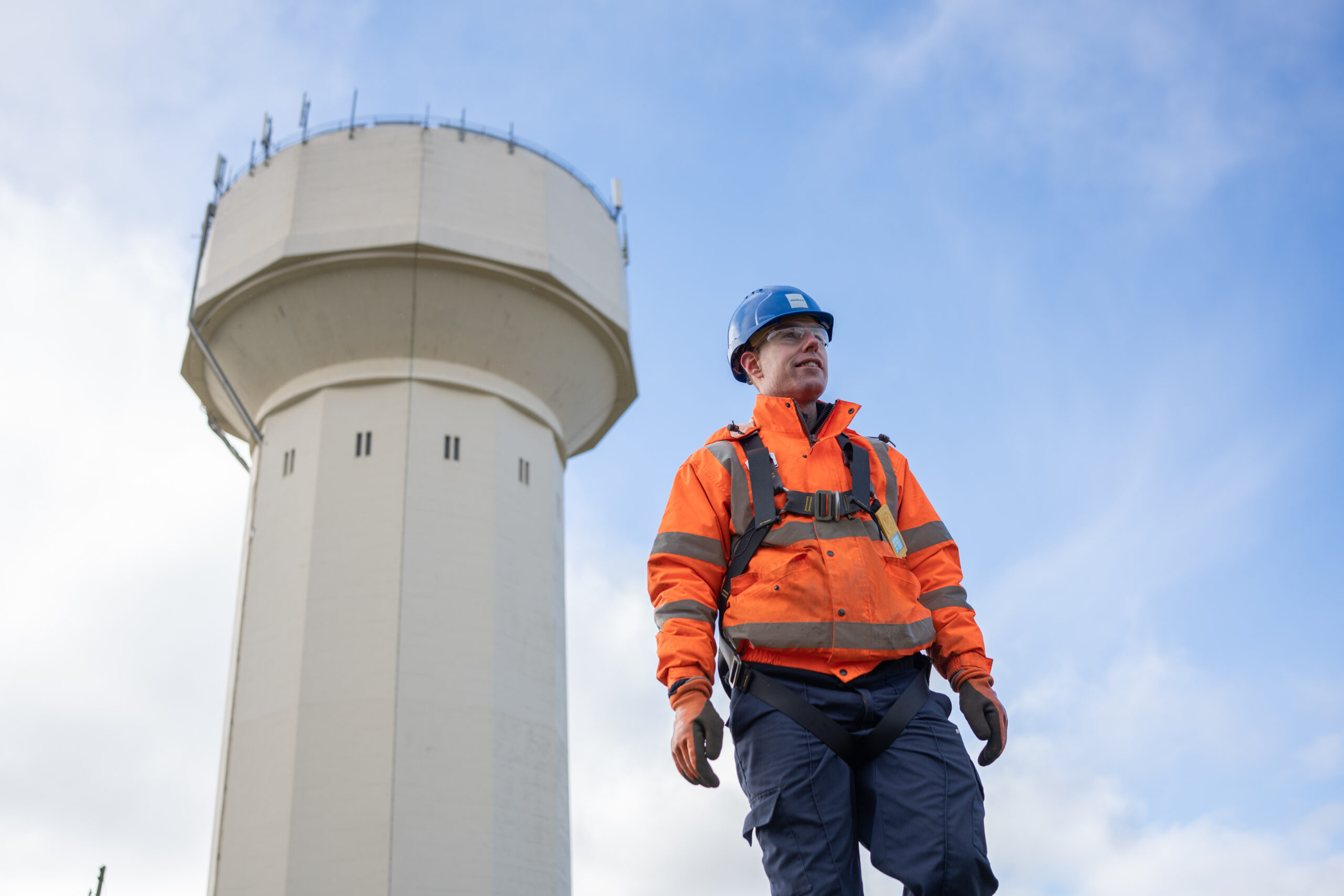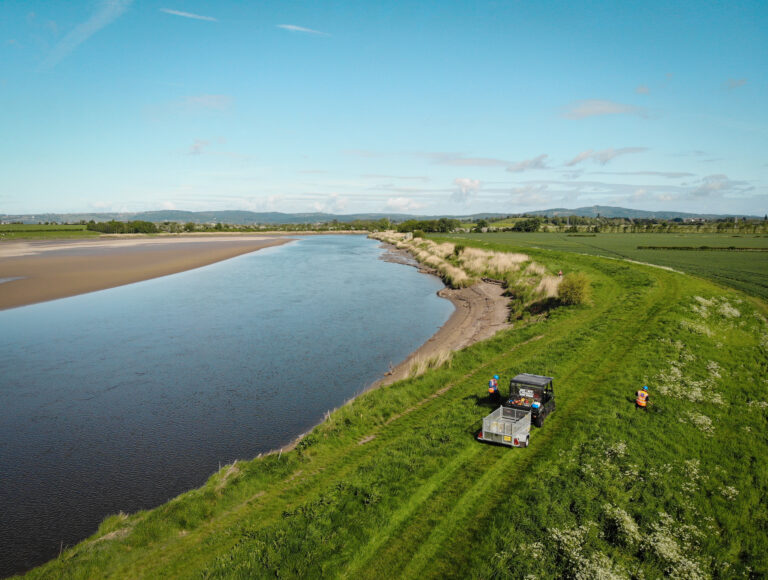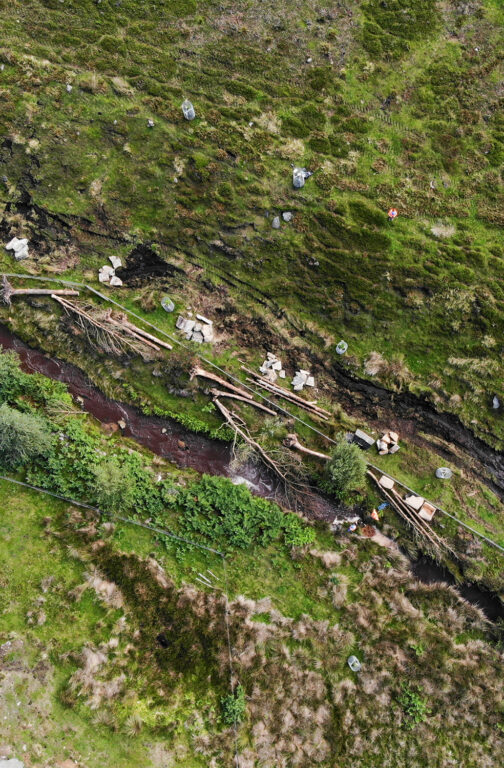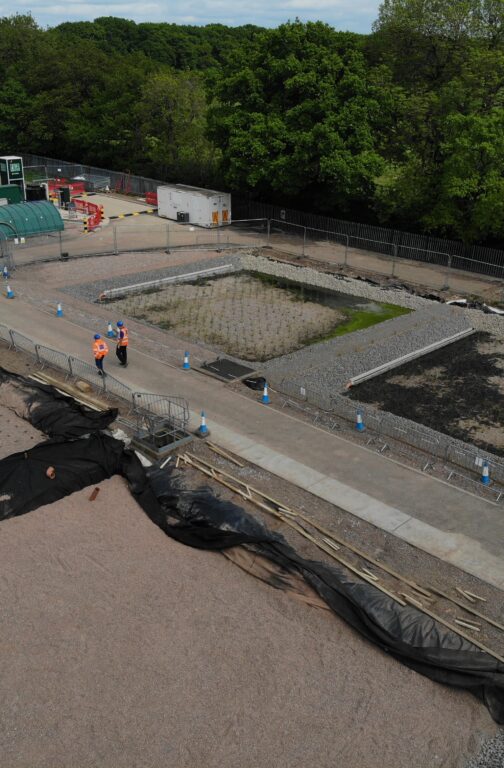The UK’s water sector is at a pivotal moment. Against the backdrop of climate pressures, ageing infrastructure and rising demand, the need for smarter, more sustainable solutions has never been greater.
Recognising this, Stonbury’s recent rebrand reflects a broader shift within the industry. It demonstrates a renewed vision and purpose.
The rebrand makes Stonbury’s values clear: it is “a business that cares about people, the environment and what it does”, reaffirming its commitment to delivering sustainable solutions across the sector and redefining its market presence to better support the water industry in England and Wales as it enters its largest regulatory programme ever, and the biggest water infrastructure investment in over a century. However, this rebrand is only the beginning.
Stonbury is also committed to driving action across four critical areas: protecting the environment through low-carbon alternatives, delivering nature-based solutions, reducing spills from floods, and restoring assets to optimise performance.
ADDRESSING CHALLENGES AT THEIR ROOTS
To tackle its most complex challenges, the industry must embrace a whole systems thinking approach. This means moving beyond isolated interventions to understand connections between assets, environments and communities.
For example, investing in managed wetlands can deliver multiple benefits: mitigating flood risks, enhancing biodiversity, improving water quality and sequestering carbon. These systems can reduce harmful nutrients such as phosphates and nitrates, using specially selected plant species and natural filtration, limiting chemical pollution and protecting aquatic ecosystems.
Nature-based solutions offer compelling alternatives to traditional grey infrastructure, aligning with the industry’s net-zero ambitions.
Adopting this systems thinking approach requires collaboration beyond the water sector. Engaging local authorities, environmental groups and other industries to deliver shared value will challenge stakeholders to design for the long term, focusing on resilience, adaptability and environmental stewardship.
RAISING STANDARDS THROUGH COLLABORATION
By working together, water companies, their supply chain, regulators and environmental groups can pool their expertise to create assets that are truly resilient, sustainable and easier to maintain.
Stonbury’s refreshed approach is built on this collaboration to accelerate change.
With a directly employed workforce and best-practice mindset, it works hand-in-hand with clients to deliver high-value, low-carbon solutions that stand the test of time.
Structured collaboration at the B2B level will be a catalyst for driving the industry forward and delivering sector-wide economic and community value, offering better service, reducing leakage and spills, restoring rivers, reduced inefficiencies, and improving water network performances.

DELIVERING PRACTICAL ENVIRONMENTAL OUTCOMES
Stonbury is actively increasing its participation in projects that address excess overspills and enhance ecosystem resilience. This includes green and grey wastewater infrastructure improvements and catchment-based programmes such as river restoration and wetland rehabilitation.
It advocates a holistic approach that maximises existing asset potential while working with nature to achieve Government goals. Incorporating green engineering and nature-based solutions into programmes enables long-term environmental security, bolstering flood and drought resilience, enhancing water quality and promoting biodiversity net gain.
Stonbury also assists companies in reducing unwanted stormwater spills by strengthening wastewater networks, refurbishing process tanks and delivering riverine improvements to outfalls.
By maintaining and refurbishing existing assets, its programmes extend asset lifespans, reduce emissions and offer low-carbon alternatives to replacement. It also enables the delivery of faster, lower-cost upgrades that don’t compromise future water security.
SAFEGUARDING ASSETS
Innovation plays a key role in creating a sustainable future. As such, Stonbury is continuing to adopt smart solutions that optimise asset performance, reduce emissions and improve performance outcomes.
Through its recent acquisition of Panton McLeod, Stonbury extended its remote inspection and cleaning capabilities, utilising ROVs, drones and other tools to deliver fast, safe, sustainable results.
These approaches are helping to improve operational efficiency, reduce energy use and support organisations in meeting climate-related goals.
As the industry embraces AI and digital twin technologies, these innovations will transform how the sector operates, improving foresight, accelerating response times and supporting more sustainable long-term planning.
LOOKING AHEAD
Stonbury’s rebrand builds on its legacy of leadership and specialist services, strengthening its role at the forefront of environmental delivery and wastewater innovation.
By embedding technology, structured collaboration and systems thinking into every part of its operations, Stonbury is helping to set the direction for a smarter, more sustainable future.
Together, the sector has an opportunity, and a responsibility to leave the environment and the assets entrusted to it in a better condition than they were found.






